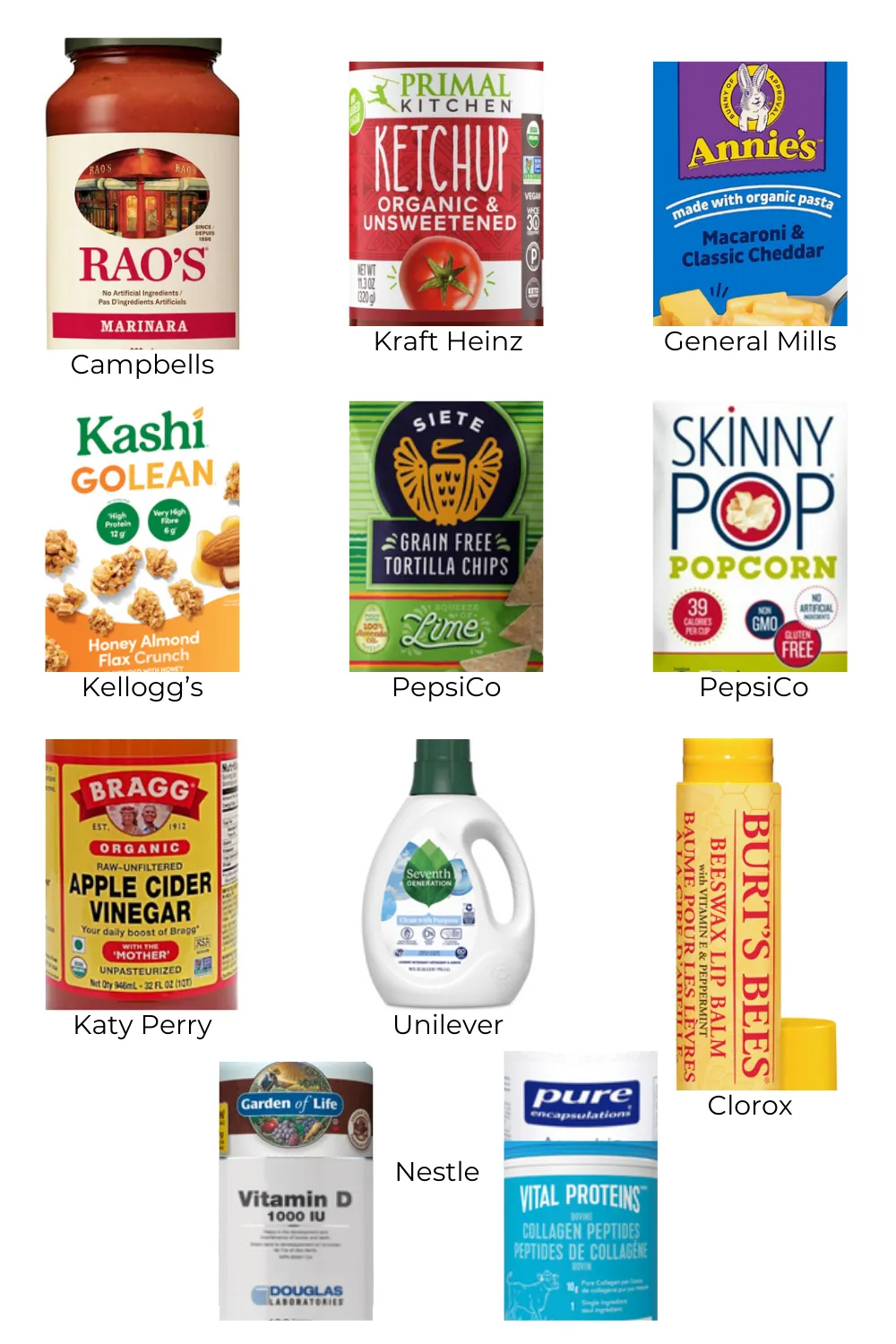On The Blog
This is the where I immerse myself in all aspects of holistic wellness.
My aim is to educate, inspire, and motivate by sharing information that fuels my passion.

Who Really Owns Your Favorite Health Brands? What Every Conscious Shopper Should Know
Who Owns Your Favourite Brands?
Have you ever wondered who owns your favourite food brand, personal care product, protein powder, vitamins or supplements? You might be surprised to learn how often these smaller health brands are bought out and controlled by larger companies!
Take a look at the image below, can you find the brands that you use? Did you have any idea that almost all of the brands that you see in stores are owned by one of the 11 mega corporations?
Just the other day I was reading that one of my favourite health focused brands Siete Foods was acquired by PepsiCo. If you haven't heard of Siete Foods, you can read more about their story here. I loved their mission, their whole food ingredients and that it was family owned.
You may be thinking, PepsiCo is a pretty big company wouldn't this be a good thing? And how do smaller businesses become acquired?
An acquisition "is when one company purchases most or all of another companies shares to gain control of that company. When 50% or more is purchased it allows the acquirer to make decisions about the newly acquired assets without the approval of the companies shareholders."
So when large corporations acquire smaller, health-focused brands, it can often spark excitement and concern for us as consumers. On the one hand, these acquisitions can provide the smaller brands with increased resources, allowing them to scale their production, expand distribution, and reach a broader audience. This can make once niche, health-conscious products more accessible to the mainstream market.
However, there are concerns about whether the core values of these smaller brands—such as their commitment to organic ingredients, sustainability, or ethical sourcing—might be compromised. Large corporations, driven by profit, may alter recipes, sourcing practices, or quality standards to cut costs, which could affect the integrity of the original products.
Did you know these brands are owned by...

As consumers, it's important to stay informed about the parent companies behind our favourite brands and keep an eye on any changes in the product’s quality or mission after acquisition. While some partnerships maintain the integrity of the smaller brand, others may shift its focus away from health-conscious values.
My biggest piece of advice is to ALWAYS read the ingredients list - never assume! In case you missed it, check out my previous blog 5 Key Questions to Consider When Reading A Food Label to learn how to make healthier choices.
Free Resources
Grab Your Stress-Free
Habits Guide
Free Download: The Secret
To Consistency
What is a holistic nutritionist and why work with one?
Let's start with the basics! A holistic nutritionist is a professional who approaches an individual's health needs from a comprehensive and integrative perspective, taking into account not only nutrition but also the mental, emotional, and spiritual well-being of an individual. This approach is rooted in the belief that optimal health is achieved through balance in various aspects of life, not just through dietary choices. By choosing to work with a holistic nutritionist, individuals can gain a deeper understanding of their unique health needs, receive personalized guidance, and embark on a journey towards holistic well-being that goes beyond traditional dietary approaches.
Are you covered under insurance?
Some insurances do cover nutritionists! You have to check with your specific provider. You can always contact me for my licence number and designation to double check.


